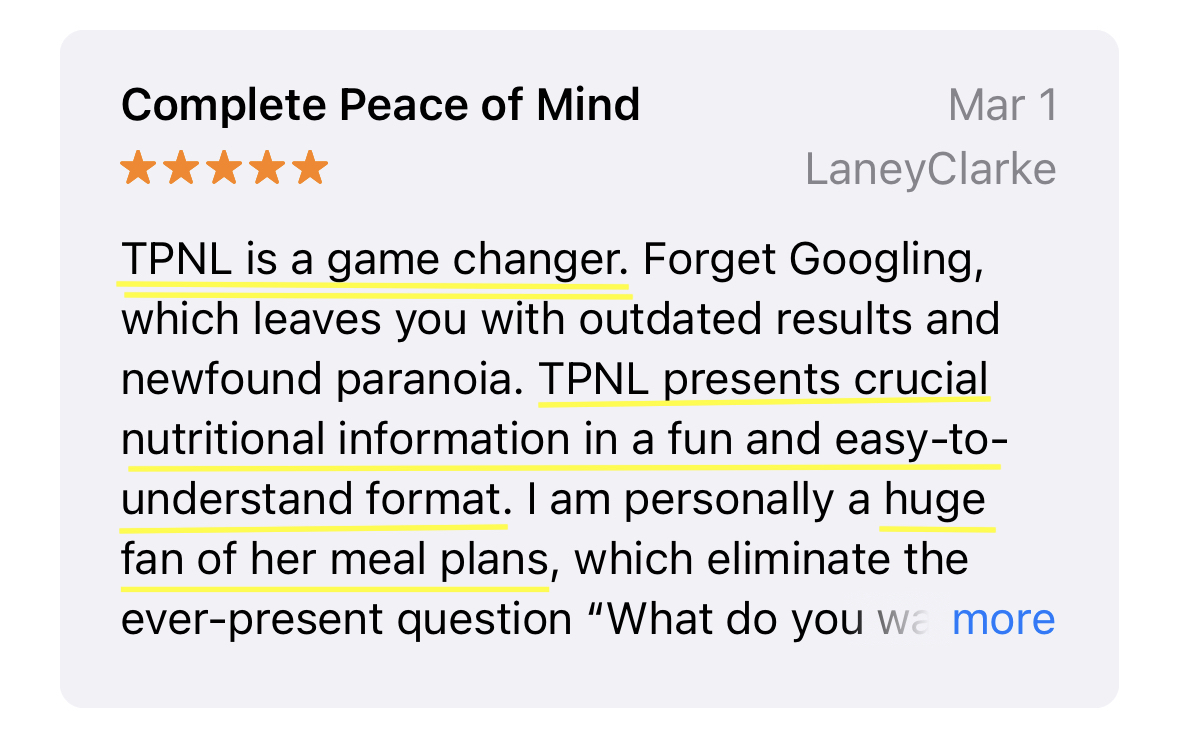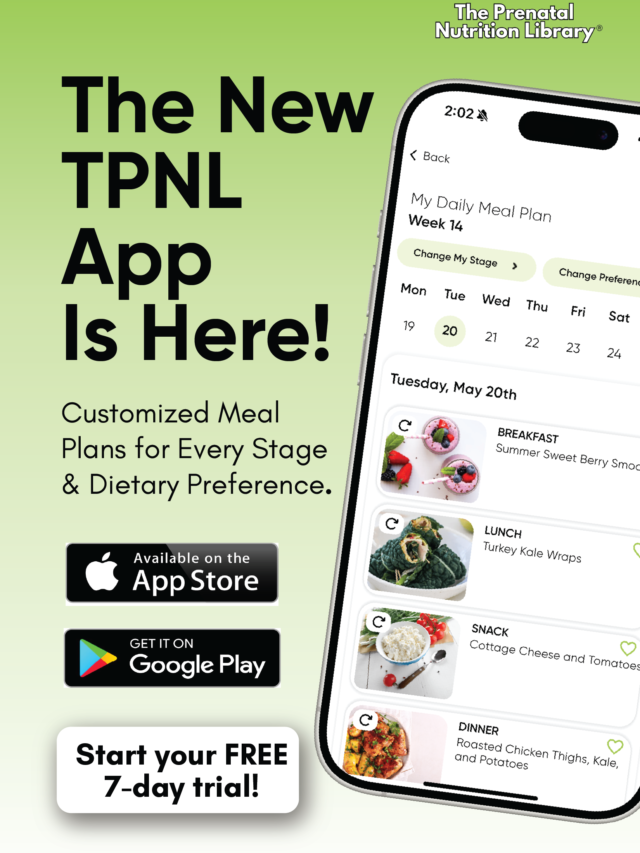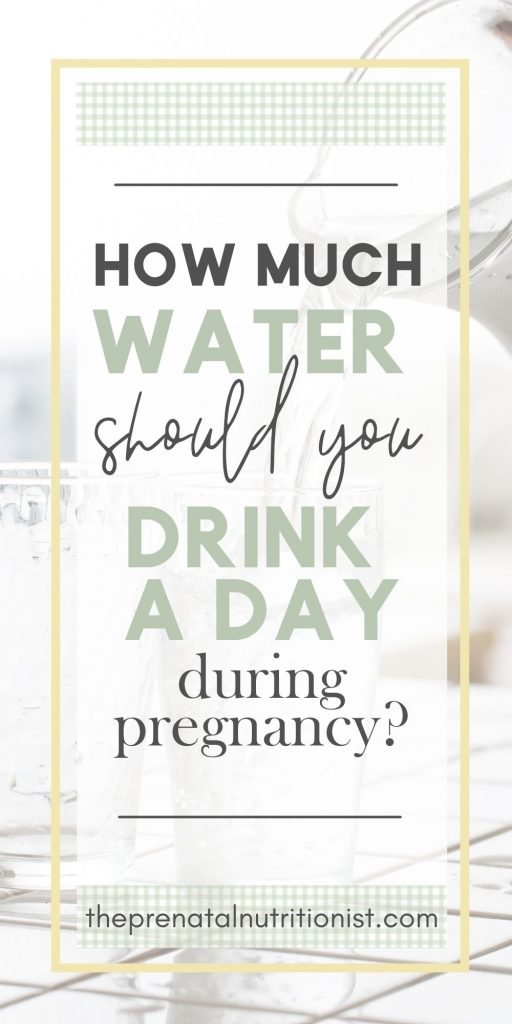
Water is a pregnant woman’s BFF! Drinking enough water during pregnancy is vital because the body is going through so many changes and demands to support a growing fetus and lower pregnancy complications. In fact, pregnant women need more water than the average person. Consuming enough water ensures a pregnant woman produces sufficient amniotic fluid, builds new tissue, absorbs and transports essential nutrients to the growing fetus, generates the extra blood volume needed, and improves their overall digestion.
Staying hydrated can also help fight fatigue, bladder infections, and constipation. If you think you are experiencing dehydration contact your healthcare provider for a medical review.
In today’s post, I’ll be tackling exactly how much water you should drink during pregnancy and how much is safe to drink. So, get your water bottle ready and keep reading below!
How Much Water Should You Drink A Day During Pregnancy?
The general rule for drinking enough water is that everyone should drink at least eight 8-ounce glasses daily. However, the Institute of Medicine recommends that pregnant women drink no less than ten 8-ounce glasses daily. The American College of Obstetricians and Gynecologists (ACOG) recommends between 8 and 10 cups of water per day.
Our recommendation is to focus on consuming 100 ounces of total fluids per day, not just water. This is closer to 12 cups of fluids per day.
Things to consider about this general guideline is to monitor your exercise, environment, and overall health. Everyones needs will vary! If you work out, replenish your body with fluids and potentially electrolytes. Your body loses electrolytes when it sweats. If it’s a hot day outside, consume even more water because heat causes dehydration faster.
If you aren’t feeling well and you are experiencing diarrhea or vomiting due to morning sickness, it’s always best to recharge yourself with fluids and electrolytes (we linked our fave pregnancy electrolyte packets). For the added electrolytes, try unsweetened coconut water. These three important factors will help you determine how much you should modify your specific fluid needs.
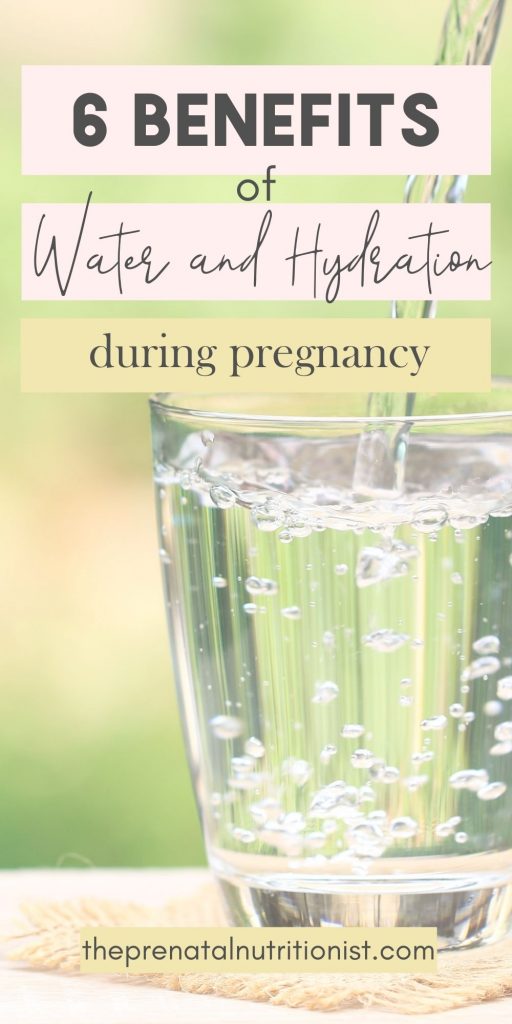
Benefits Of Drinking Water During Pregnancy
Reduces the risk of constipation.
Drinking enough water ensures everything flows properly through your gastrointestinal tract. When you aren’t hydrated, your colon pulls water from stools to replenish fluids throughout your body, which causes constipation. Drinking adequate water will lessen the chances of this happening!
Brightens the skin.
Water functions as a protective barrier to prevent fluid loss in the skin. When the skin is dehydrated, wrinkles and fine lines may start to show. By drinking enough water, you are helping your skin maintain its moisture and natural glow.
Decreases the potential of leg cramps.
Leg cramps are yet another common pregnancy symptom. Although there is no standardized treatment for leg cramps, ensuring proper hydration is definitely tip number one. If you are cramping often, you may need to increase your fluid intake. Additionally, focusing on foods high in magnesium and potassium may help!
Transports nutrients to your baby.
All the food, prenatal vitamins, and minerals you are consuming each day are transported to your baby through water. This is because it helps your body absorb essential nutrients and carries them to your cells. Those nutrient-rich cells are responsible for growing your baby.
Increases your energy levels.
Is morning sickness making you tired? The good news is that water can help combat fatigue. Water helps to energize your muscles because a good balance of fluids in the body contributes to the proper performance of your cells. When your muscles are energized for the day, you will find it easier to do everyday tasks without feeling worn out.
Prevents bladder infections.
Water dissolves waste and flushes bacteria away from the urethra. This is how bladder infections are prevented, through moving waste efficiently through the digestive tract and keeping urine diluted. Drink plenty of water during pregnancy and you’ll avoid recurring urinary tract infections.
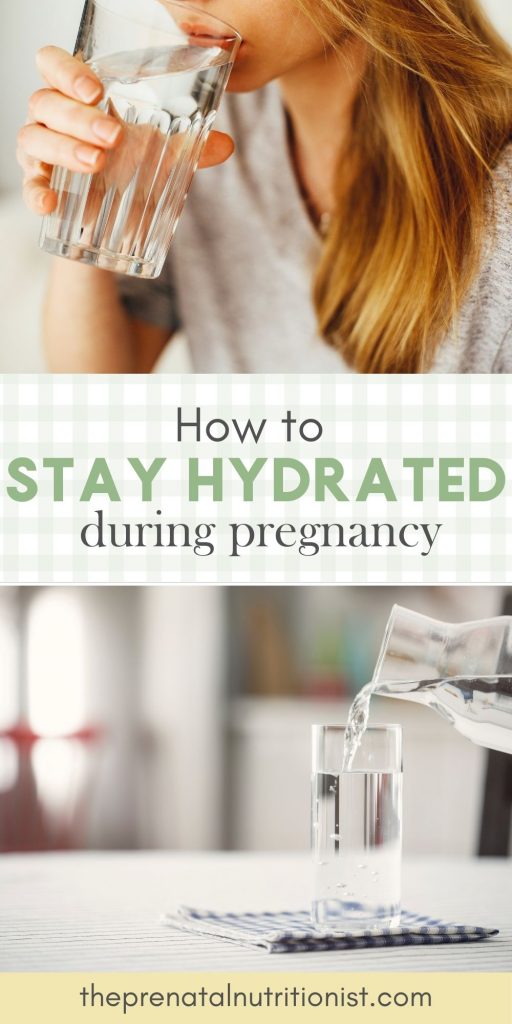
How To Stay Hydrated During Pregnancy
Use an app to track your water intake or ‘reminders’ on your phone.
Pregnant women can benefit significantly from a water-tracking app if they are tech-savvy. This is helpful for remembering how much water you have already drunk and how much you need to drink to stay hydrated for the day. It also works as a reward system! It’s satisfying to see the little celebratory message pop up on your screen each time you meet your daily goal. Give it a try! Additionally, you can utilize the ‘reminder’ feature on your phone so it will remind you to take a sip every so often.
Try different herbal teas.
Swap the caffeine for herbal teas to increase your daily hydration levels. While not all herbal teas have the green light to go ahead, many are safe in moderation during pregnancy, as you aren’t consuming the herb directly but a very diluted amount through water. Some of the most popular include ginger, chamomile, and peppermint. Others that are safe include those made from fruits, like lemon tea. Many of these teas can help when nausea hits or help fight off a cold, so that is also a plus.
Keep a water bottle with you at all times.
Keeping a sizable stainless steel or glass water bottle by your side throughout the day can increase your chances of meeting your daily water goal. Plus, many fun designs and different types of stainless steel water bottles can keep your water cold for more than 24 hours! Buying a new fun cup or bottle might give you a little extra motivation to drink water!
Make sure your urine remains colorless or light yellow.
Very yellow urine is a warning sign of dehydration. Colorless or light yellow urine shows you are drinking enough water and your body is replenishing its fluid regularly. Try to check the color of your urine once a day (aim for pale yellow) to make sure you are adequately hydrated throughout the day!
Eat foods that are rich in water.
Every pregnant person should eat plenty of fruits and vegetables when able. In addition to being a nutritious snack, these foods have a high water content, which can help support hydration alongside what you drink while pregnant. Strawberries, celery, apples, watermelon, tomatoes, and kiwis are great examples of fruits and vegetables that contribute to your daily fluid intake through food.Have at least a glass of water with every snack and meal.
This is key to making sure you are drinking enough fluids, in general, during pregnancy. Make it a habit to start your day with a tall glass of water. With every snack, sip on some fruit-infused water or herbal tea. The conscious choices are the ones that can really make a difference if you are trying to stay hydrated and drink enough fluids.
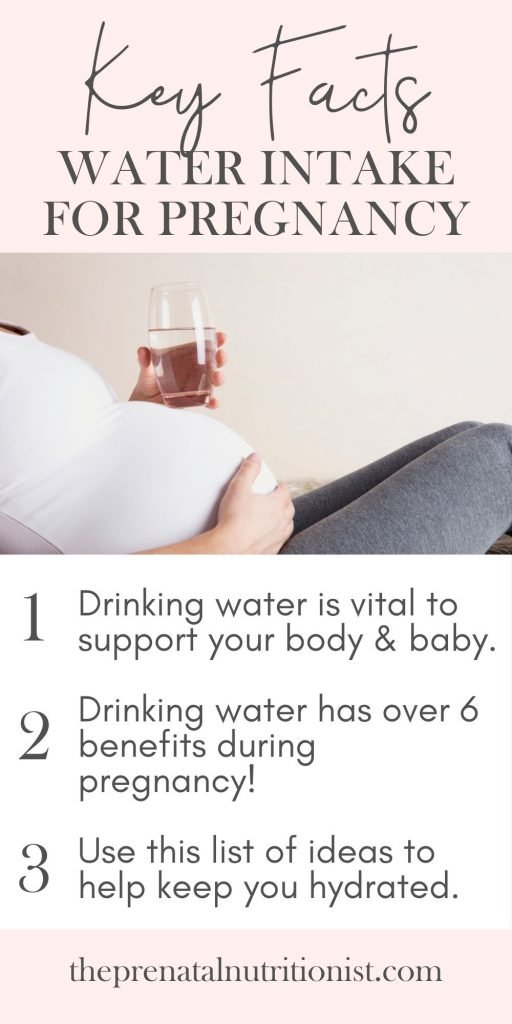
What is your favorite tip for drinking enough water during pregnancy?
Now you’ve learned why drinking water and fluids, in general, is so important during pregnancy. Remember to aim for 8 glasses of water daily and 100 ounces of fluids total! This number should increase if your activity is high, the weather is hot, if you feel thirsty, and if you’re experiencing unpleasant pregnancy symptoms like nausea and vomiting.
Get yourself a cute new water bottle, set reminders on your phone, put sticky notes on your mirror, and have a feel good pregnancy!
Wondering if that sushi roll, herbal tea, or cheese is safe during pregnancy?? With our Pregnancy Food Search, in The Prenatal Nutrition Library App, simply type in any food, ingredient, or drink and instantly get answers about its safety and benefits!! Download it for free!
